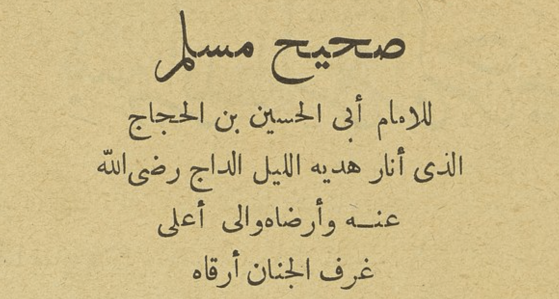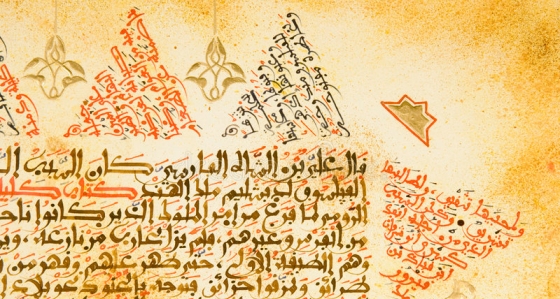This article will examine one of the corrections that Aisha made, specifically regarding Umar’s stance on abstaining from performing additional prayer after ‘Asr until the end of sunset. Additionally, this study will analyse a passage from a PhD dissertation by Sofia Rehman, an admirer of the feminist writer Fatema Mernissi. Rehman translates various reports from Imam Zarkashi’s collection but interprets them through a feminist and liberalist lens. Her work contains errors related to the basics of the science of hadith which we will take a look at.
Why Did Imām Muslim Not Relate Ḥadīth From His Teacher, Imām Bukhārī, in His Ṣaḥīḥ Compilation?
First reason: Imām Muslim did not meet Imām Bukhārī until the later part of Imām Bukhārī’s life, after Imām Muslim had completed the 15-16 year compilation of his Ṣaḥīḥ…
Book Review: The Contentions Between Imām Ibn Ḥajar and Imām al-ʿAynī and the Khuṭbah of Ṣaḥīḥ al-Bukhārī
This is regarding the academic rivalry between Imām Ibn Ḥajar and Imām al-ʿAynī, two 9th-century scholars who wrote their own their individual commentaries on Ṣaḥīḥ al-Bukhārī…
Disproving the Veracity of Imām Sufyān Al-Thawrī’s Criticism Against Imām Abū Ḥanīfah
Every ignoramus with a wifi connection and a platform possesses the unwarranted liberty of speaking on various matters of Dīn, and erring gravely in the process. This includes transmitting out-of-context excerpts plucked from lengthy books…
Mawḍūʿāt in Ḥadīth: Signs, Books & Examples
There are three main reasons for this:
1. To make its falsehood known: Muḥammad ibn Rāfiʿ says, “I saw Aḥmad ibn Ḥanbal in the gathering of Yazīd ibn Hārun with the book of (Zuhayr from Jābir al-Juʿfī— a liar) I said to him: ‘Why do you prevent us from Jābir al-Juʿfī but write from him yourself?’ He replied: ‘So that we may recognise him (as a fabricator and thus be able to distinguish his fabricated ḥadīth from the sound ones).'”…
Mutawātir According to Ḥanafiyyah: Extracted From Uṣūl al-Bazdawī
Linguistically: It comes from the word wa-ta-ra which refers to “the coming of things consecutively with small intervals”. ʿAllāmah Bazdawī has put the qayd (qualification of) “from you until the Prophet (ṣal Allāhu ʿalayhī wa-sallam)” because he intends it in the context of the sunnah…
Unique Nicknames (Alqāb) of the Narrators of Ḥadīth
Sometimes one encounters anomalous names such as “Ghundar” and “Ābi ‘l-Laḥm” and considering their meanings wonder, what a strange name? In this article, I have selected some of the most common and interesting titles/nicknames (alqāb) of narrators from a few books and briefly explained what they translate to, where they originate from, and what was the reason why narrators were given them. I have listed all nicknames in alphabetical order (Arabic)…
Women Visiting Graveyards
Losing a loved one is certainly a difficult period in one’s life and requires some time for one to heal. People resort to different methods to help them cope and for some, visiting the grave of their loved one is a source of relief and contentment with the decree of Allah.
How to Start Seeking Islamic Knowledge
Firstly, it is important to consider whether you want to seek knowledge just for yourself i.e. to understand what Allāh Taʾālā has obligated, forbidden upon you, or, you want to seek knowledge on a scholarly level, to get guidance and be a source of guidance for others…
What to do After Graduating ʿĀlimiyyah?
This is a common question, and the answer to it is quite circumstantial. Therefore, some people might find a few of the following suggestions impractical. Thus, every individual can make a different decision based on their unique interests, abilities, and circumstances. The following are only a few suggestions on what one can do after graduating from the ʿālimiyyah course…
How Can I Bring Myself to Read More Often?
At the beginning of our journeys of seeking ʿilm, we study books under our teachers. However, as a student of ʿilm progresses in their journey, they must first start with some side readings through the approval and guidance of their teachers and then advance to self-studying books about sciences they have already gained their preliminary knowledge about. One obstacle, however, is that in this era brimming with potential distractions, some students find it difficult to read. Thus, below I aim to list a few general tips that might help with motivating and disciplining one to read more often…
Some General Advice for Dawra al-Ḥadīth Students
Some common questions of students going into Bukhārī year (final year of the Nizāmī curriculum) are: How should I prepare? Which commentaries should I invest in? Which books should I refer to for further reading and research? Below is my humble attempt at listing a few tips that came to mind…











